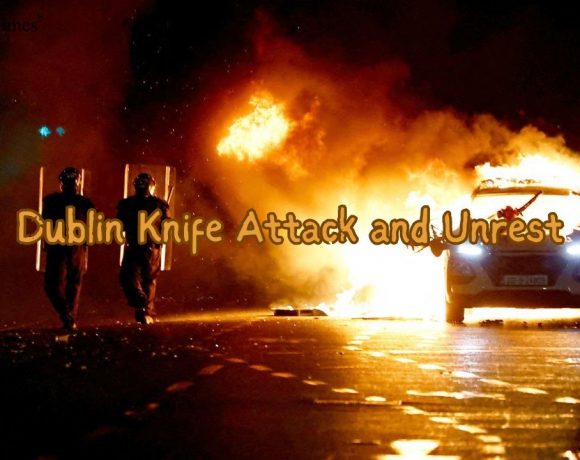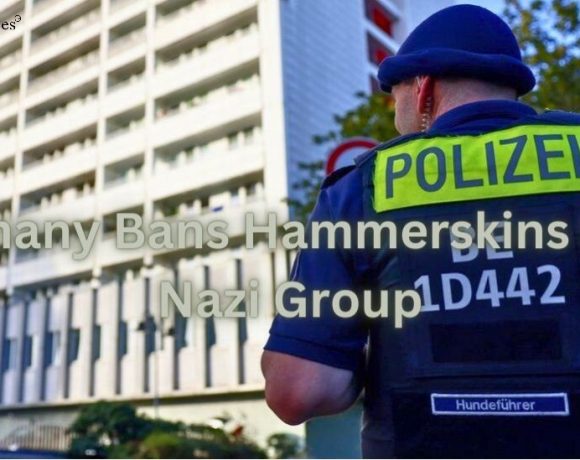
A knife attack in Dublin has left a five-year-old girl, a woman in her 30s, and a man in his 40s seriously injured. The incident occurred outside Gaelscoil Choláiste Mhuire school on Parnell Square East in the city center, prompting subsequent violence, including vehicle fires and shop looting.
The suspected attacker, identified as an Irish citizen who has lived in the country for 20 years, is now a person of interest in the ongoing investigation. Irish police have indicated that they are not actively searching for other individuals at this time and are pursuing a definite line of inquiry.
The disorder that followed the attack was attributed by the head of An Garda Síochána (Irish police), Drew Harris, to a “lunatic, hooligan faction driven by a far-right ideology.” More than 400 officers were deployed to maintain order, and riot police were called in as protesters gathered in the area near the crime scene.
The streets are reported to be mainly calm now, with no serious injuries resulting from the subsequent violence. However, Chief Superintendent Patrick McMenamin attributed the disorder to “gratuitous thuggery,” and several incidents of attacks on officers were reported. The exact number of arrests made remains unclear.
The unrest centered on several streets in Dublin city center, including O’Connell Street, where vehicles were set on fire, including at least one police car, a tram, and a bus. Additionally, a shop on O’Connell Street was looted, and the windows of other stores were smashed.
Trinity College, located nearby, went into lockdown, closing all gates to its campus due to the disturbances. Irish Prime Minister Leo Varadkar announced the deployment of extra police resources in response to the situation, expressing shock at the knife attack and cautioning against misinformation circulating on social media.
Despite the ongoing investigation, the motive for the attack remains unclear, as stated by Drew Harris, who urged the public to “act responsibly.” The Irish President, Michael D Higgins, expressed his thoughts for the affected children and families, condemning the incident and discouraging its use for agendas that oppose social inclusion.
In response to the attack, the Irish National Teachers’ Organisation (INTO) expressed solidarity with the Gaelscoil Choláiste Mhuire school community, describing the incident as horrendous and emphasizing support for those affected.
Picture Courtesy: Google/images are subject to copyright

